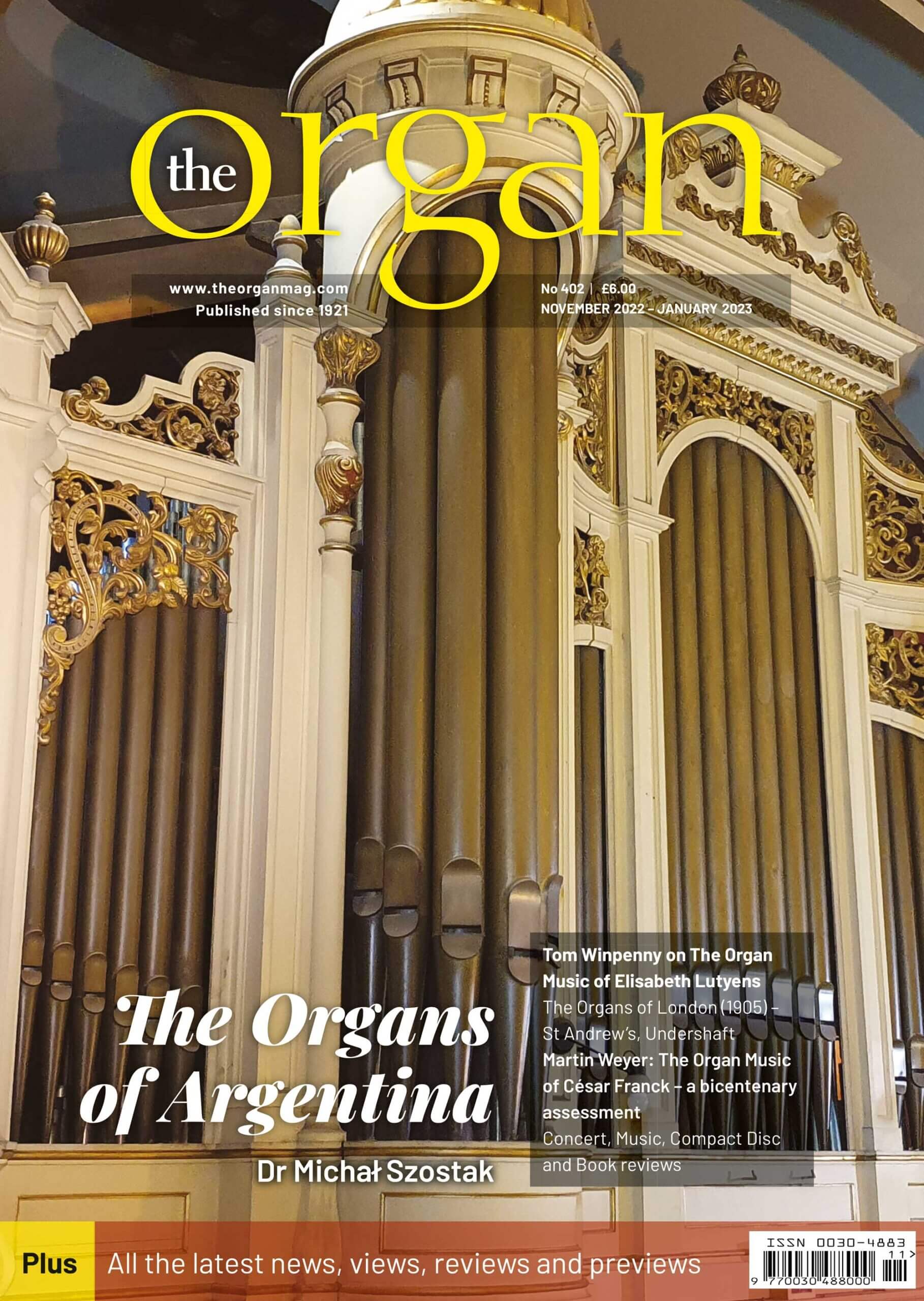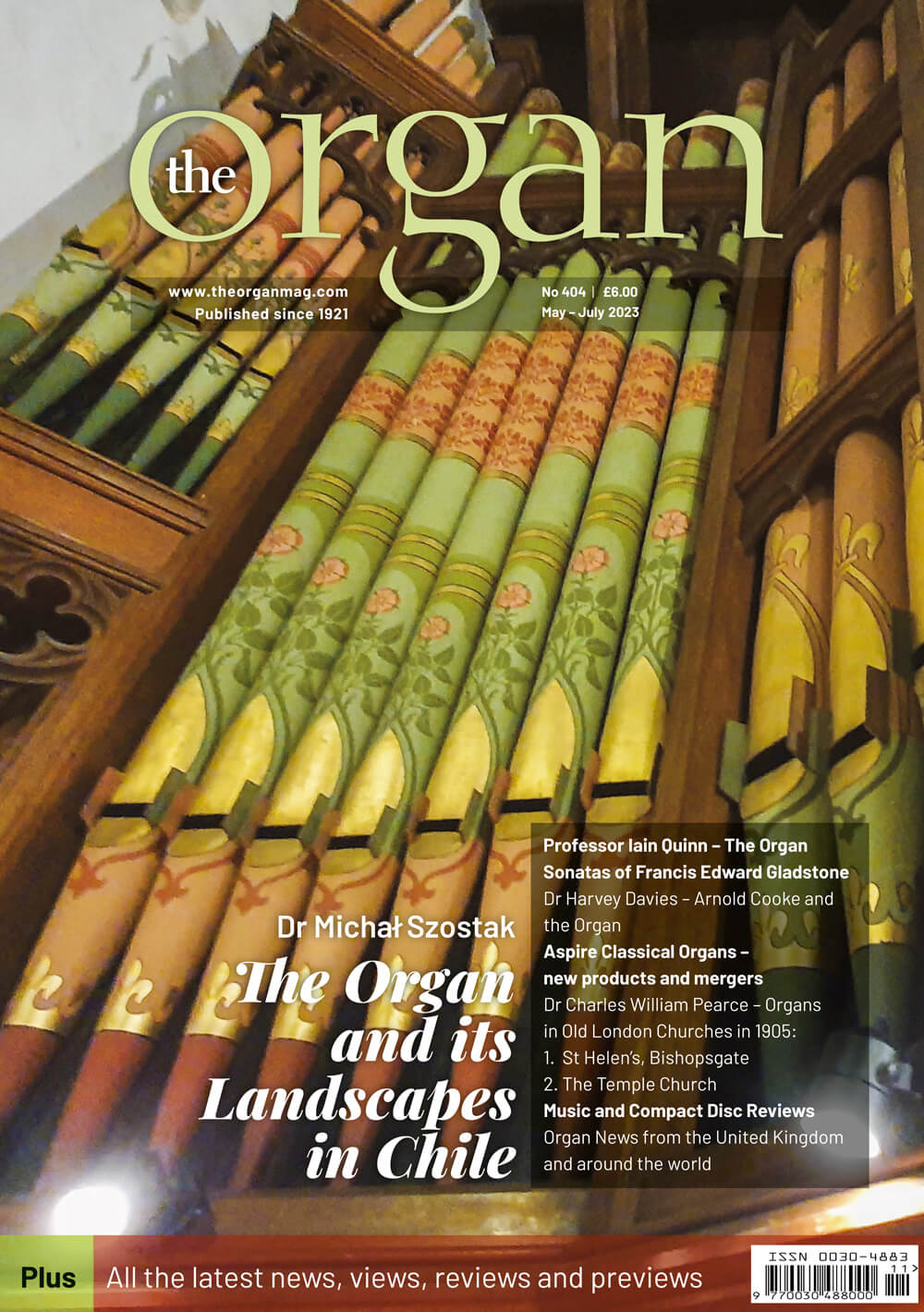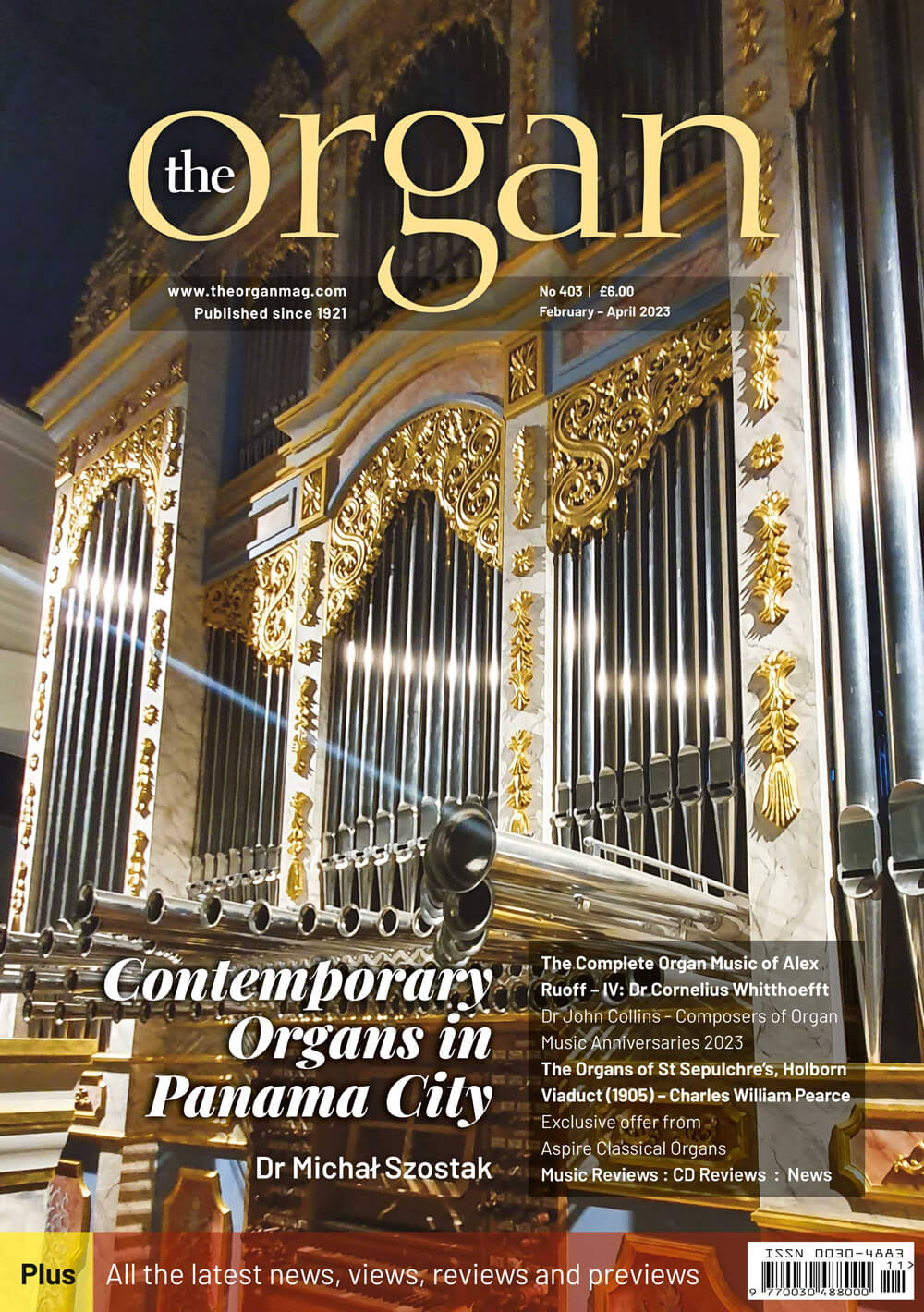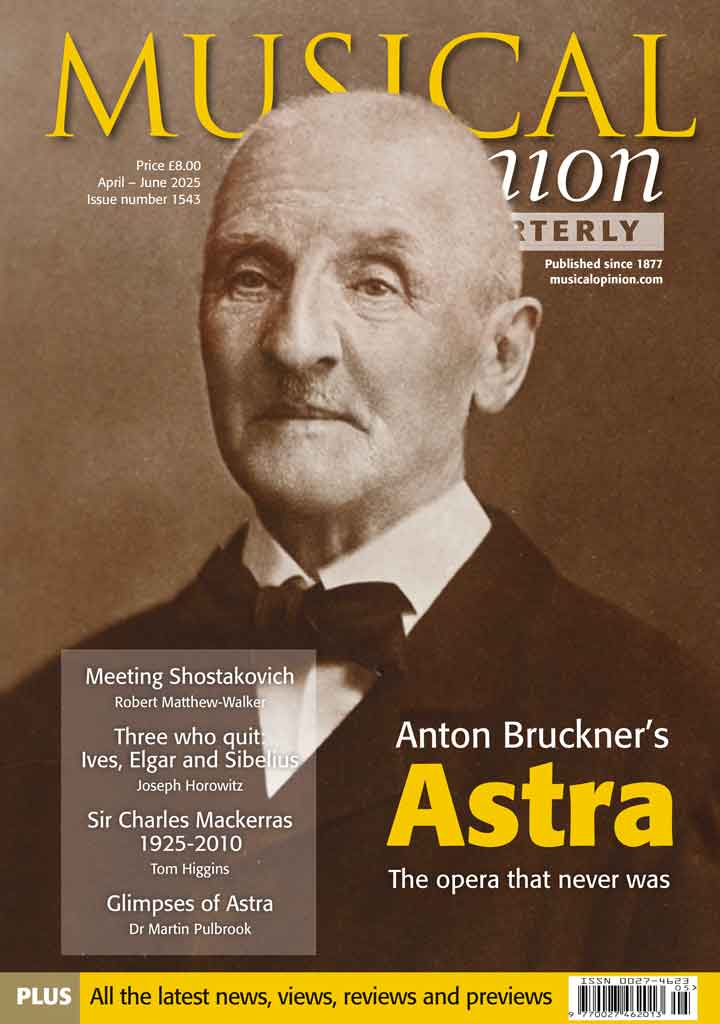

Current Issue
Previous Issues
Spring 2025. Issue 1541
Winter 2024. 1540
Autumn 2024. 1539
Summer 2024. 1539
Spring 2024. 1538
Winter 2023. 1537
Autumn 2023. 1536
Summer 2023. 1535.
Spring 2023. 1534.
Winter 2022. 1533.
Autumn 2022. 1532.
Summer 2022. 531.
Following the dispicable and illegal invasion of Ukraine, the Summer 2022 edition of Musical Opinion carries a large article about Sergei Prokofiev, arguably its most famous composer along with an overview of the Ukrainian classical music scene over the last one...
Spring 2022. 1530.
Winter 2021. 1529.
Autumn 2021. 1528.
Summer 2021. 1527.
Spring 2021. 1526.
Winter 2020. 1525.
Autumn 2020. 1524.
Spring 2020. 1522.
Explore By Topic
Summer 2020. 1523.

When the Music Stops … when the venues close and choirs are silent
Dr Brian Hick
The author spoke to musicians on the South Coast of England who are dealing with the realities of cancelled rehearsals and closed venues as a consequence of Covid-19.
The renaissance of music-making in Hastings and the surrounding area in recent years has been close to miraculous, but all are affected by the current total shut-down and are responding in different ways.
Kenneth Roberts, Musical Director of Opera South East, said ‘Apart from the obvious disappointments of having projects that one has been working on cancelled, the most harrowing thing for me personally has been having to cancel sessions for which I had booked singers and musicians. I have so far cancelled over 250 sessions I had booked people for and I haven’t finished yet!
For those of us ‘fortunate’ enough to have reached a somewhat venerable age, things are not necessarily that bad on the financial front on account of having built up a small cushion over the years but if this had happened twenty or thirty years ago, I should have been struggling to pay the bills and my heart goes out to those younger people, especially those working in the arts, who are self-employed. My own programme of work has been decimated. My diary has virtually evaporated for the next six months.
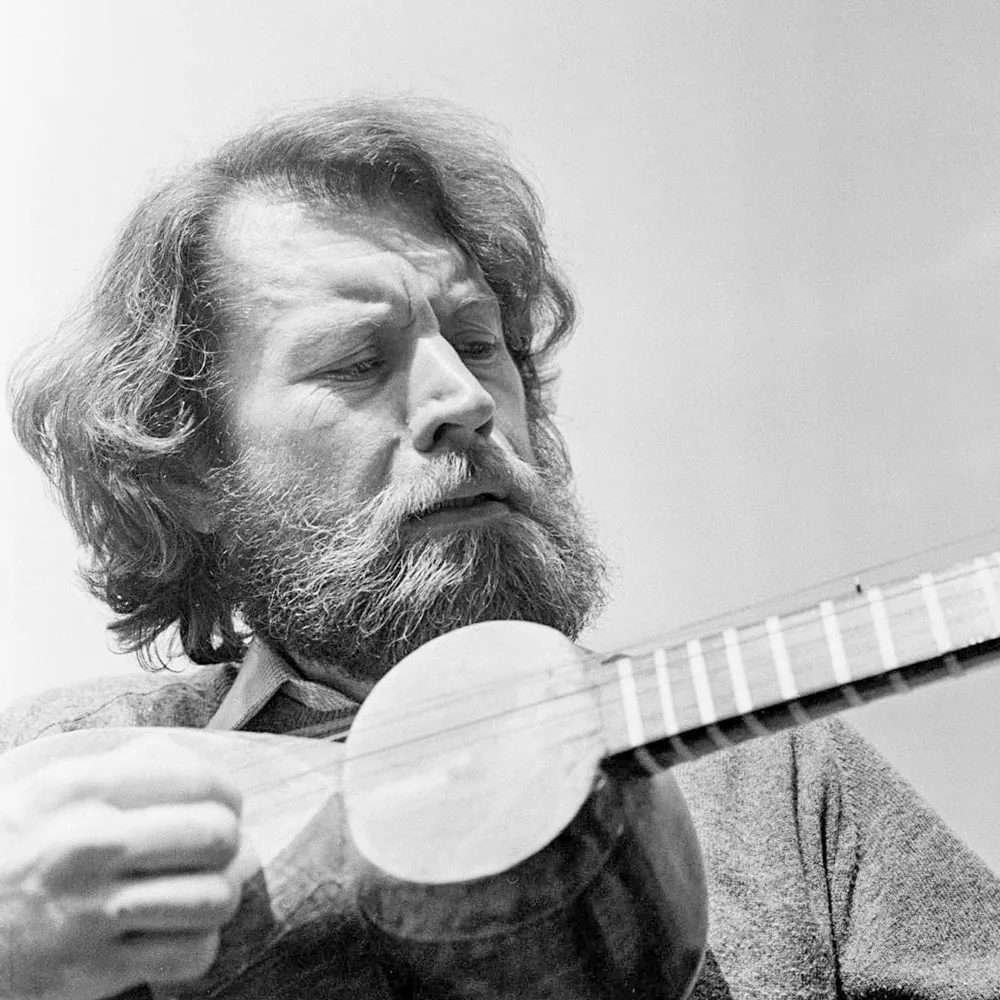
Vyacheslav Artyomov - a tribute to the Russian composer on his 80th birthday
Robert Matthew-Walker
Regarded as one of the most important composers of his generation, for many, Vyacheslav Artyomov is the most significant Russian composer to have emerged since the death of Dmitri Shostakovich.
One reason for the comparative lack of international appreciation of Artyomov’s work is his inherent artistic character. He is at heart a rare type of Russian artist, a spiritual mystic, one who abjures modern-day fashion and the courting of easy popularity. Yet his music – of wide-ranging nature with regard to genres – could not be regarded as either mystery-mongering for its own sake, or exhibiting the self-centred isolationism and consequential irrelevance of the artist as egoist.
The work of such an essentially spiritual composer as Vyacheslav Artyomov travels but slowly in today’s artistic climate. Another, wholly practical, reason for this in his case is that many of his more important works are scored for unfamiliar instrumental combinations, so they do not ‘fit in’, as it were, to standard concert programmes.
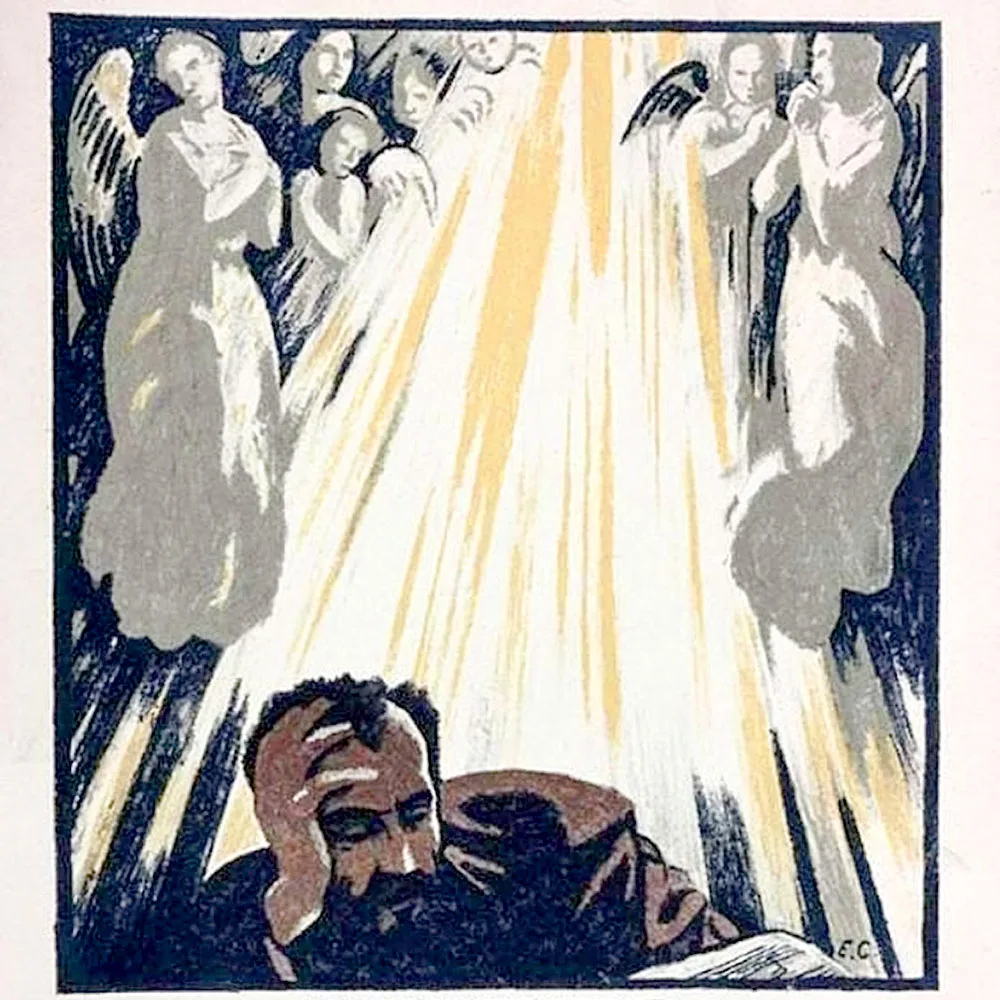
Hans Pfitzner's Palestrina : 'musikalische Legende' in three acts
Brendan G. Carroll
Marking the close of the sesquicentenary year of Hans Pfitzner’s birth the author traces the background to the composer’s operatic masterpiece.
Hans Pfitzner (1869-1949) is regarded as the last of Germany’s conservative traditionalists, yet ironically, he was actually born in Moscow on May 5 1869, where his father was violinist in a theatre orchestra. The family moved to Germany in 1872 and he grew up in Frankfurt. Pfitzner always regarded himself as wholly German, almost fanatically so, and he never spoke a word of Russian.
In fact, his pride and devotion to his adopted land was to develop to such an extent that, when National Socialism began its inexorable rise under Hitler, he embraced its ideals with a fervent enthusiasm that eventually led to his reputation (and his music) being forever tarnished with Nazi sympathies, even to the present day.
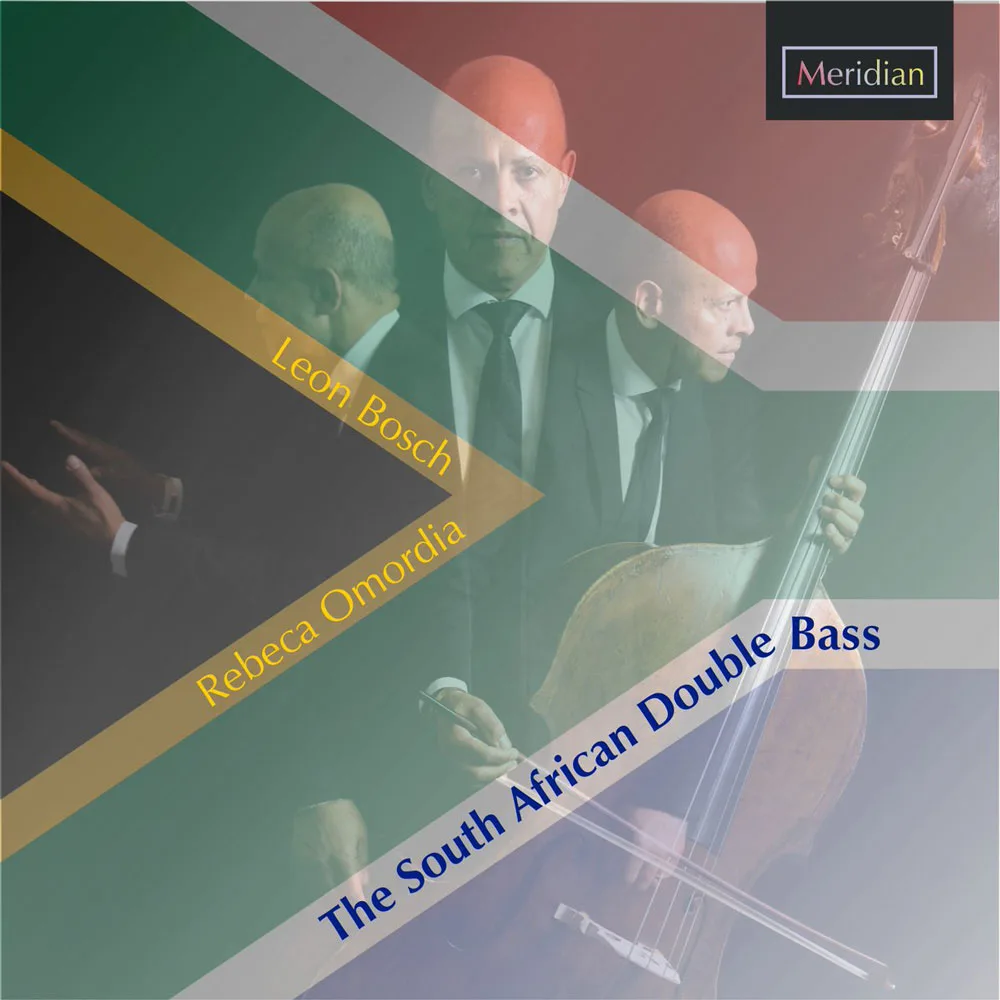
The South African Double Bass: Leon Bosch
It was in 2015, more than thirty years into my career performing concertos and solo recitals around the world, and with a string of CD recordings to my name, that I realised my musical mission was deficient in one significant respect; I had no music in my repertoire that acknowledged my South African roots.
I immediately set about looking for music by South African composers, and this proved to be unexpectedly challenging. Stefans Grové (1922 – 2014) was rumoured to have composed a vignette for unaccompanied double bass, but my research failed to uncover it — or anything else for that matter. There was nothing.
No South African born composers had seemingly written for the double bass as a solo instrument, and my quest to establish a repertoire of music for double bass by South African composers would have to start from scratch.

